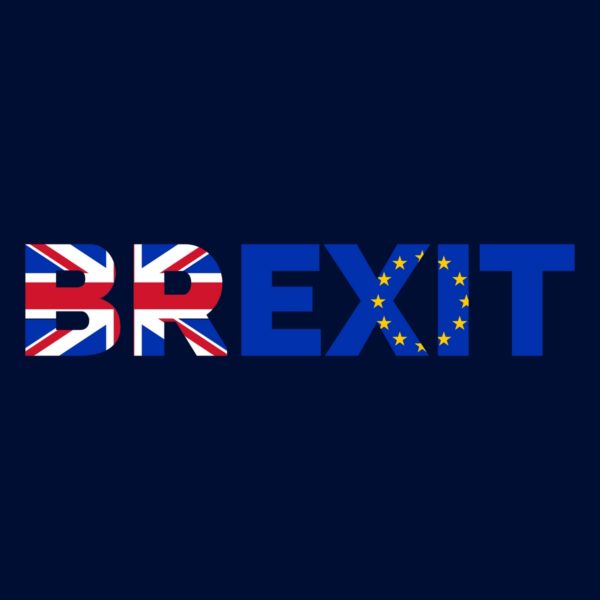Utblick’s newsletter for international affairs
Britain’s finally out
The 31st of January marked the official exit of the United Kingdom from the European Union nearly four years after the Referendum. The UK’s slightly farcical hesitation at the metaphorical threshold of the EU’s front door has ironically united both Europeans and Brits alike in poking fun at the Islanders’ administrative and organizational skills (or lack thereof). Now that the UK has finally stumbled out the door (to much partying or mourning), however, the real challenge of negotiating future relations with their neighbours will begin. As it stands, the UK is still more or less a member of the EU in all but name; they still pay the ‘membership fee’, and all the trade relations will continue until the end of the so-called ‘transition period’ when they will revert to standard international trade rules unless an acceptable deal is brokered between the two. The latter is much easier said than done, however, as the major sticking point, that of the Irish/UK border still remains largely unresolved, and political infighting in Westminster hinders progress considerably despite PM Johnson’s sizeable majority.
The new threat to public health
The infamous coronavirus has arrived in Sweden, with the first patient being tested positive in Jönköping, central-southern Sweden, said the Public Health Agency of Sweden (Folkhälsomyndigheten). First spotted in Wuhan, China, the nCoV is said to spread from human-to-human and can cause severe pneumonia but the extent is still unknown. Fearing a new pandemic in the globalised world, the EU has mobilised additional funding under shortened response periods. The WHO emphasised that the spread can be contained and did not recommend any travel or trade restrictions. Yet, some countries published travel warnings and airlines cancelled flights to China. The outbreak was declared a global health emergency to further coordinate actions. Despite the confidence in China’s capacity to control the outbreak misinformation, racism and xenophobia and a threatening regional economic slowdown, including China’s weakest growth in decades, have become global issues. Global research is also taking up and journals started sharing pre-published research for free.
Real-time case statistics can be accessed here.
Follow the health risk assessment for the EU/EEA here.
Burning island
Since September 2019, bushfires have been spreading around the outskirts of Australia.
Currently; 33 people have lost their lives. Over 2700 homes have been lost. More than 11 million hectares have been burned down. Around 1.25 billion animals have been killed.
Bushfires occur every year and are natural for the rejuvenation of Australian soil. However, Australia has experienced record average temperatures. Strong winds further fuelled the fires by increasing the levels of oxygen and spreading the flames. There is scientific consensus that the rising levels of CO2 are warming the planet and influencing the high temperatures in the country. The government has received much criticism as Australia is one of the world’s biggest per-capita greenhouse gas emitters.
After ongoing public resentment, Prime Minister Scott Morrison has now promised to increase funding for firefighters and for the recovery.
Click here to see fire hot-spots across Australia.
The controversial Middle-East Peace plan of D. Trump
The 28th of January US President D. Trump released an 81-page “Peace Plan for the Middle-East” which has immediately been rejected by the Palestinian Authority. The US’ proposition includes the creation of a demilitarized Palestinian state. Palestinian territories which have been colonised by Israel would be annexed by the latter. The capital city of Israel would officially be Jerusalem, while an “eastern” Jerusalem would be one of the Palestinian states. “Eastern” is very vague for Palestinians who are attached to “East” Jerusalem as their capital city. While the Arab League supports the position of Palestine, the UK urges the Palestinians to consider this plan as the first step for negotiations. The Swedish foreign minister said the plan does not meet the “requirements set by the EU or by International law”. The only positive aspect of the plan was the move to a two-state solution. Nonetheless, the Palestinians decided to cut ties with Israel and the US on February 1.
Summary of the deal, and triggered reactions.
Trump’s impeachment
Speaking of Mr Trump, on the 18th of December 2019, the American President was impeached by the House of Representatives. The reason for initiating the process of impeachment was President Trump’s phone conversation with the newly elected President of Ukraine Vladimir Zelensky on the 25th of July 2019. In the course of the talk, Trump has urged Ukraine to restart the anti-corruption investigation towards Hunter Biden – son of Joe Biden, who is arguably the strongest Democratic Presidential Candidate for the 2020 elections and one of the most significant competitors for Trump- in exchange for the military aid to Ukraine. After that, President Trump was charged with 2 articles of impeachment: abuse of power and obstruction of Congress in its investigation the Trump’s conduct with Ukraine. He is the third president in US history to be impeached, along with Bill Clinton and Andrew Johnson. Starting from the 16th of January 2020, the Senate has been holding a trial to determine whether to remove the President from the Office or not, as only the Senate has the legal power to do so. The final vote on whether or not to acquit President Trump will be held in two days, on the 5th of February 2020. However, as the Senate is controlled by Trump’s fellow Republicans, there is a lot of doubt whether the Democrats will be capable of removing him from power.
A simple guide to Trump’s impeachment





